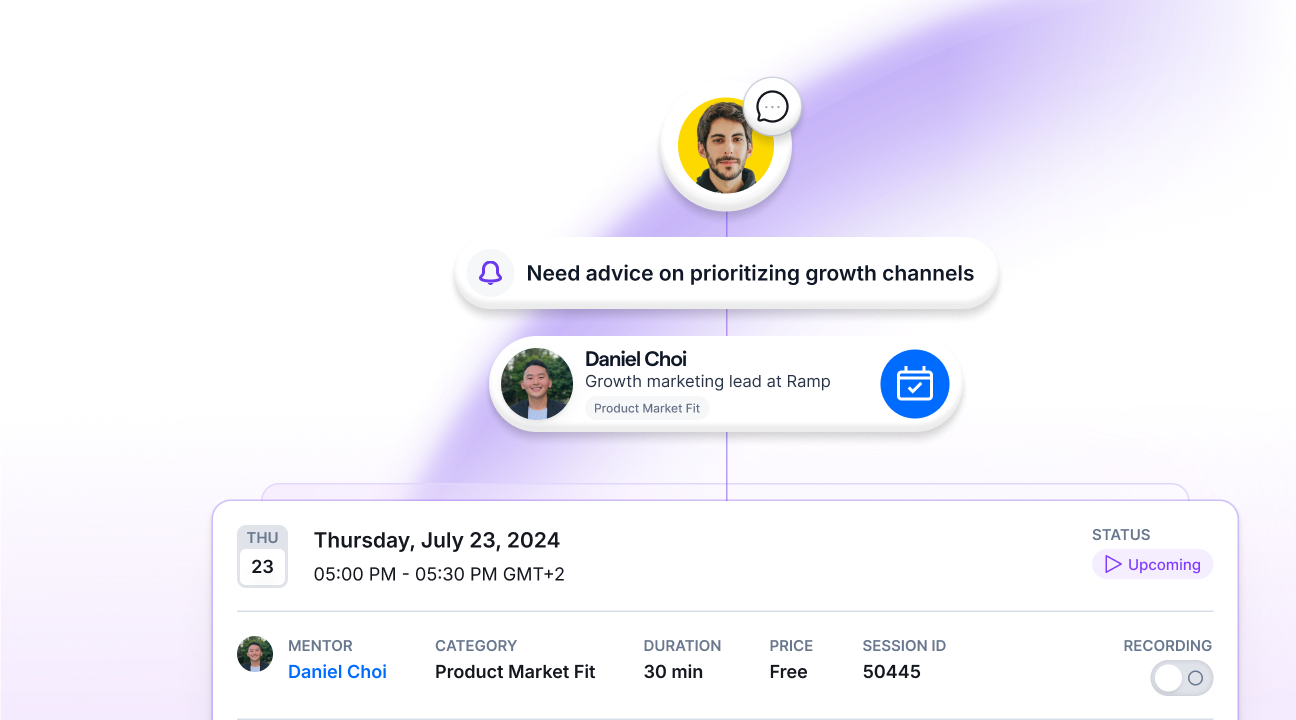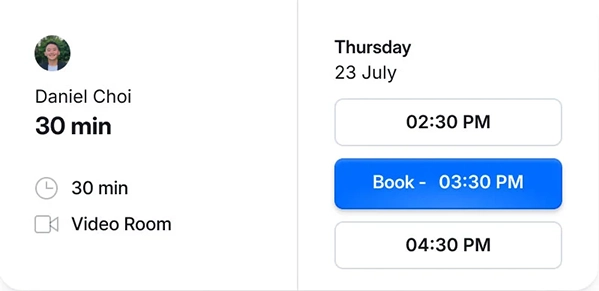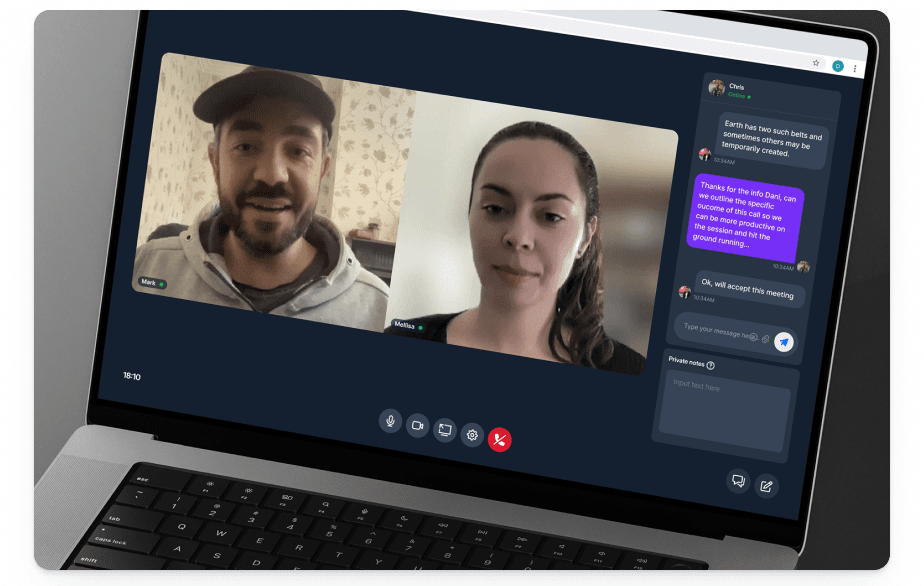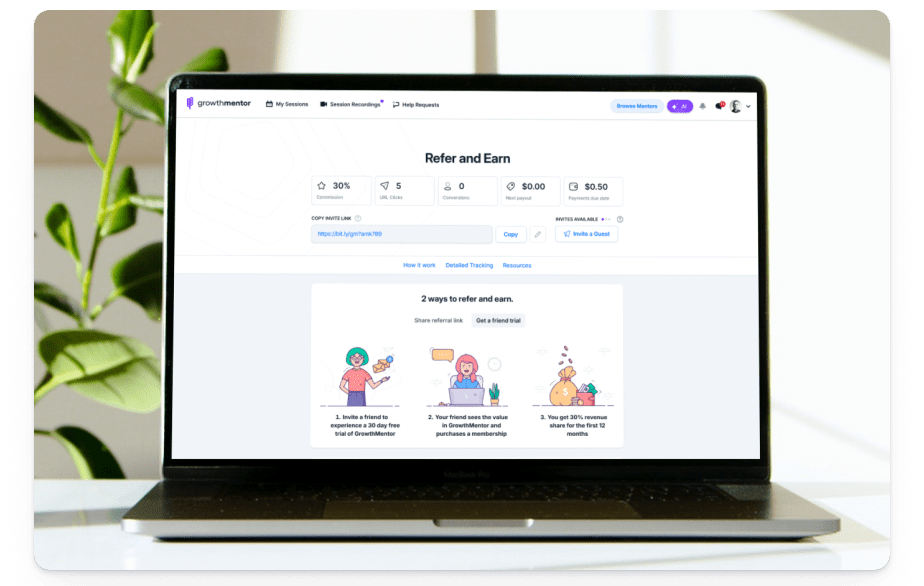“It’s insane how I’m able to hop on Zoom calls with hundreds of experts that work at some seriously impressive companies!”


Find mentors with UX design experience
Connect with the right people and get unstuck


Find your mentor

Book a Call

Get unstuck
UX design mentors at your fingertips
What would you like to get better at today?
Just a few of the topics being discussed over casual conversations on GrowthMentor
Book Zoom calls with vetted UX design mentors and receive personalized advice tailored to your situation.
How do we get started with UX research?
How can a small team run user research?
How do we make our designs accessible?
How should we prioritize our user flows?
How do we run UX testing remotely?
How do we design for scalability?
How should we design for different platforms?
How do we use iterative design processes?
What tools will we use for user testing?
How do we implement feedback effectively?
How do we measure design’s impact on KPIs?
How do we manage design handoffs?
How do we create intuitive navigation?
How can we reduce cognitive load for users?
All your questions about mentorship, answered
How can a design and UX mentor help me?
There’s one big problem with great design: it’s invisible to the untrained eye.
Sure, almost anyone can recognize a bad design when they see it. But it’s hard to know what makes the best designs great.
If you’re gifted with a keen visual sense, you may be able to pick it apart. But most of us aren’t so gifted.
Plus, beyond the rules of good visual design, great product design requires understanding user psychology and the principles behind great user experience. Not to mention you’ll need a great grasp of user research as well.
A UX and design mentor can walk through every flow and interface of your product or website, providing specific advice on elements to move, change, remove, and ways to streamline your design to reduce user friction even further.
They can also coach you on how to conduct great user research to streamline your designs.
And because a mentor takes a “done with you” approach, they’ll teach you how to see the world through a designer’s eyes.
Every time you see a product, you’ll understand what UX elements are at play and which user psychology principles the designers are utilizing. You’ll learn how to take inspiration from other products and use it to improve your own designs.
When should I talk to a design and UX mentor?
If you’re in the early stages of building your product or website, you likely don’t need a UX or design mentor quite yet. There are other areas that will yield more ROI for you.
But if your startup is more mature, it may be time to consider talking to a UX and design mentor. A mentor can help you when:
- You’re seeking funding and need to present a polished, intuitive product
- Your user activation rates are lackluster and you want to improve them
- You’ve received consistent user feedback about needing UX refinements
- You’d like to start with design-focused user research and don’t know where to start
- You’ve found users have difficulty using your product in tests
In all of the above cases, a design and UX mentor’s keen eye can pinpoint improvements. They’ll help you figure out exactly where to focus your efforts and how you can take your design from good to great.
Why should I talk to a mentor rather than just take a course?
Courses and blog articles can teach you best practices for design and user experience. But, ultimately, the visual element of UX and design comes down to a matter of taste and repeated practice.
Which you can’t learn from a textbook or course. You can only improve through feedback from someone with experience.
Our mentors aren’t fluffy theorists. They’ve been in the trenches and been hands-on with the work. They’ve seen fantastic successes, spectacular failures, and everything in between. They know what works and what doesn’t.
So, you could spend hundreds of hours reading articles, taking courses, and still making designs that look amateurish.
Or you could shortcut all the frustration by talking to a mentor who has walked the path before. And therefore get the feedback you need to make your UX and designs look flawless.
Why should I trust GrowthMentor’s mentors?
Excellent question. After all, the “mentorship” world is full of high-priced consultants, armchair analysts who have never done the work themselves, and outright snake-oil salesmen looking to make a quick buck.
But, there are plenty of experts out there who want to share their experience and knowledge. At GrowthMentor, we’re lucky to have 700+ of those experts.
The secret comes from our vetting process. We not only double-vet all of our mentors so only the top 3% make it through our process, we also look at their soft skills. Because no one wants a mentor who’s a snob or a jerk.
On top of that, 85% of our mentors don’t charge an extra fee. Why?
The short answer: Because they want to help people.
The long answer is because…
- They enjoy sharing their knowledge
- They learn from their mentees
- They want to be a “force for good” in the business world
- They want to pay it forward
But don’t just trust our word on it. Hear from the mentors themselves.
Join the most uplifting community on the internet

Frequently asked questions
Our mentors are the top 3% of their field. Every mentor goes through a strict double-vetting process to ensure they’re the best of the best.
But, when vetting, we also look at an applicant’s soft skills:
- Does this person have the patience to hop on a call with a total newbie?
- Can they hang with someone who is even more advanced than themselves in a certain area?
We’re looking for humility, kindness, and warmth.
These traits are what set Growth Mentors apart from other “gurus”.
They want to share their knowledge and help.
The short answer? Because they want to help people.
The long answer? Because…
- They enjoy sharing their knowledge
- They learn from their mentees
- They want to be a “force for good” in the business world
- They want to pay it forward
Yep. Purchase a pro plan and you get unlimited calls every month.
GrowthMentor is the only startup mentorship platform in the world where a single flat-rate subscription gets you unlimited access to hundreds of world-class mentors.
No exorbitant per-session fees, – think Netflix, but for 1:1 calls with startup mentors.
Two words: active learning. When your team goes to AI with their problems, they’re often consuming the information, but not applying it.
By talking things through with a mentor, your team members will sharpen their understanding of their challenges and find routes to put the advice into action faster than they could with an AI solution.
Yes. If it’s not for you, simply cancel your membership within 14 days and contact support for a full refund.
Note that refunds are not possible if you’ve breached our terms of service.




.png)












